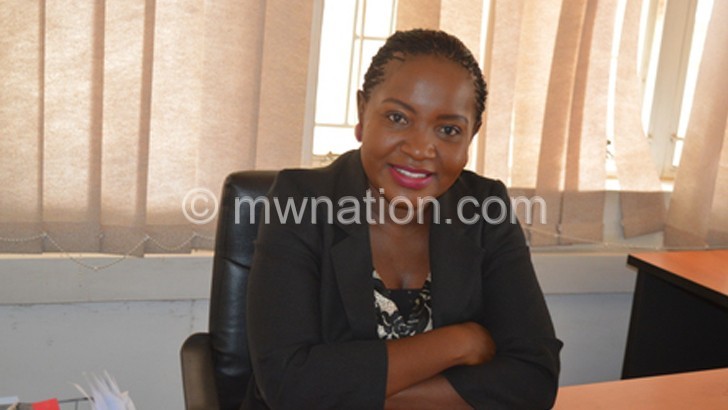K4bn payout off-track
Delays by some councils to release the contentious K4 billion payout to beneficiaries has led some areas fail to access the funds six months after Treasury disbursed the funding, Weekend Nation understands.
Our findings shows that disagreements between council officials and area development committees (ADCs) in identification of projects has also characterised the implementation exercise, leading to further delays to begin some projects.

The progress of projects in some areas that have received the funds is also slow due to heavy rains this season.
Meanwhile, government has indicated that it is compiling a report to try and ascertain performance of the first round of the new funding window.
Ministry of Local Government and Urban Development spokesperson Muhlabase Mughogho in an interview on Thursday said a report is expected to be ready by end of next week.
“After the compilation and finalisation of the report, the ministry will still go round to the councils for ground truthing,” she said.

This reporter last week visited Mchinji Central Constituency and found that only one school block at Mzura Primary School—about five kilometres from the Boma—is the only project which has kicked off since the funds were released last month.
The project which will cost K7.4 million is at foundation stage and is expected to be completed within 90 days.
But in an interview Mchinji district commissioner (DC) Rosemary Nawasha blamed the ADCs for delaying to identify projects that are implementable with the available funds.
The DC explained that members of a technical team at the council have been engaged in discussions with ADCs for some time now to agree on viable projects.
But chairperson for Zulu ADC Mike Banda dismissed this and pushed the blame back on the council, saying projects were proposed as early as July last year.
“The suggested projects were scheduled to start in September but delayed,” he said, adding that training of ADC members was done November last year for two days.
One of the proposed projects is a bridge at Maela Primary School. It is in bad shape and threatens lives of school-going children in the area but with technical advice from the council it was suggested that a school block at Mzura Primary School be prioritised.
“Community participation is at the lowest right now because people are busy in their fields. We also have a challenge of where to collect sand at this time when rivers are flooded.
“If funds had been released in good time some of these problems could have been avoided,” said Banda, who accompanied us to the project site.
Our findings indicate that the situation is not exclusive to Mchinji as other districts have a similar story.
For instance, in Nkhotakota Central, ADCs also complained of suppliers refusing to release project materials in time because council has delayed to pay them.
The area’s lawmaker Peter Mazizi also pointed out that there is unwillingness by community members to contribute sand to the projects for free.
Nkhotakota DC Greystone Alindiamawo requested for a questionnaire when we sought his comments and had not responded since last week despite reminders.
In Nsanje South West Constituency not even a single project has begun since funds were released to the district council last year, according to the area’s legislator Joseph Chidanti-Malunga.
“We came up with projects, but funds are not [available],” he said, pointing out that his constituents are in need of more school blocks and water points.
The findings also show that communities in Nkhata Bay South accessed part of the funds last week amounting to K6 million.
According to the area’s legislator Emily Chinthu Phiri, the funds have been transferred to some projects under ADCs.
The second tranche of funding is expected to be channelled through the National Local Government Finance Committee (NLGFC) which oversees council activities, she said.
NLGFC executive director Alufeyo Banda has observed that the next funding will be released after the Ministry of Local Government produces a report on implementation of projects with the first tranche of funds as demanded by Treasury.
The Community Managed Socio-Economic Project Fund (CMSEP), as the K20 million windfall per constituency is now being touted, is meant to give direct community control, management, procurement and accountability.
The community structures which are meant to be empowered through the fund are VDCs and ADCs, but the guidelines from the Ministry of Local Government and Rural Development imply that MPs will be responsible for approving projects in consultation with ADCs.
The guidelines and concept note indicate that the funds will be disbursed in whole or in tranches to the council’s District Development Fund (DDF) which will then disburse to the community project accounts or contractors.
The community accounts will be managed by the project implementation committees while auditing will be done by community audit committees.
The guidelines indicate that the flow of funds will depend on the implementation model being applied and where local contractors are doing the work, the council will disburse based on stages of completion.
According to the guidelines, the fund flow will employ various modalities depending on the implementation model being applied. The others are the Constituency Development Fund (CDF), DDF and Local Development Fund (LDF).
However, for the 2017/18 financial year, the communities are not required to open bank accounts due to time limitation.
During the Mid-Year Budget Review of the 2017/18 fiscal year, government controversially allocated K4 billion to members of Parliament (MPs) in what was widely understood as a ‘Thank You’ token to MPs who helped shoot down electoral reforms in the National Assembly in November 2017.
Later, faced with public outcry including nation-wide demonstrations, Capitol Hill made a U-turn, stating that the K4 billion kitty—that initially saw 86 legislators mostly affiliated to the governing Democratic Progressive Party (DPP) and its working partners getting about K40 million each—would now be distributed equally, meaning that each of the 193 legislators would receive K20.7 million. n





